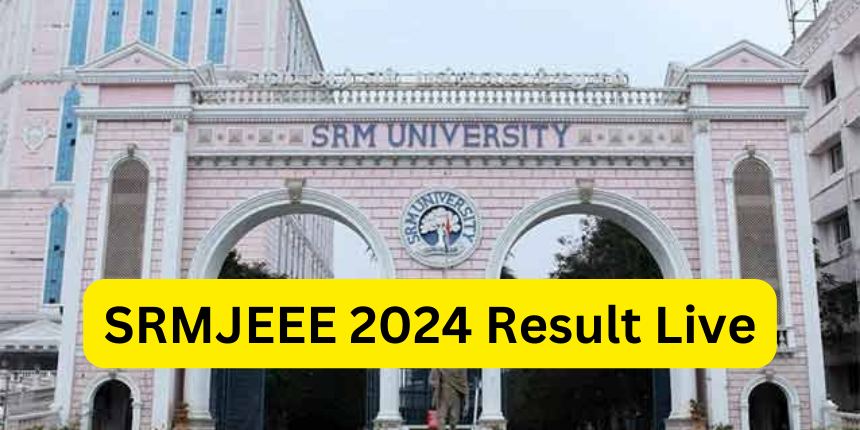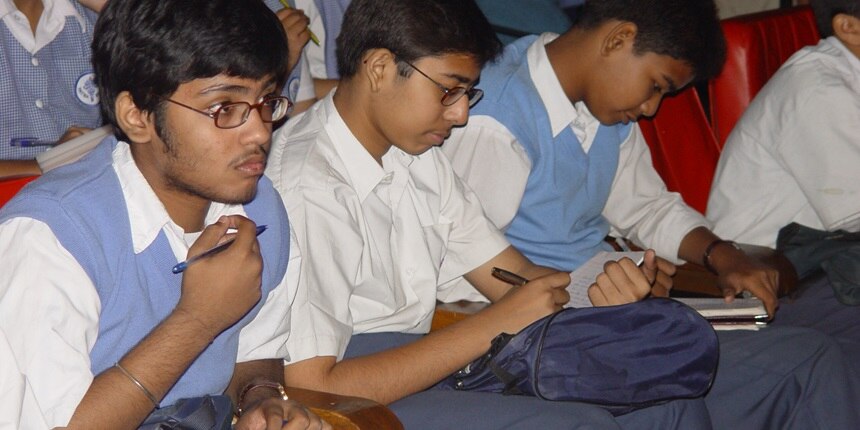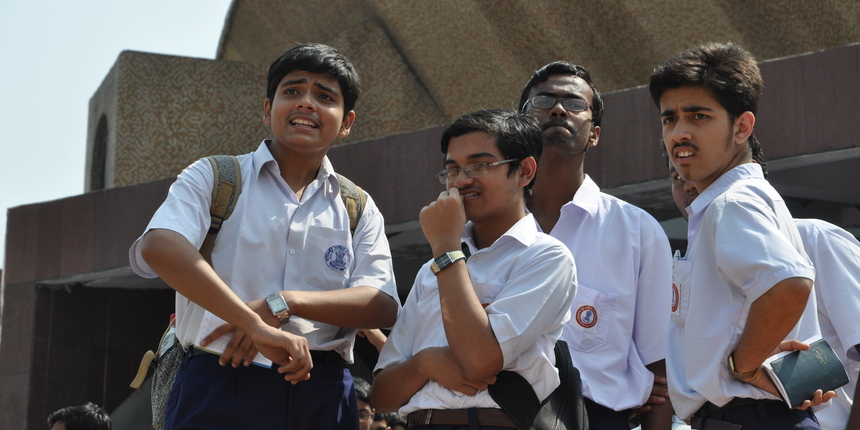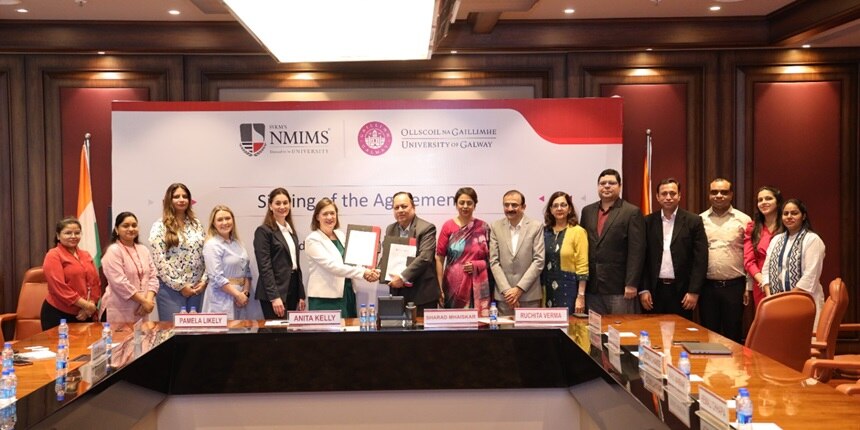AICTE focusing on VLSI, logistics, advanced communication: Secretary
Low MTech enrolment is being addressed through AICTE scholarships. Support is also available to BMS, BBA students in AICTE-approved colleges.
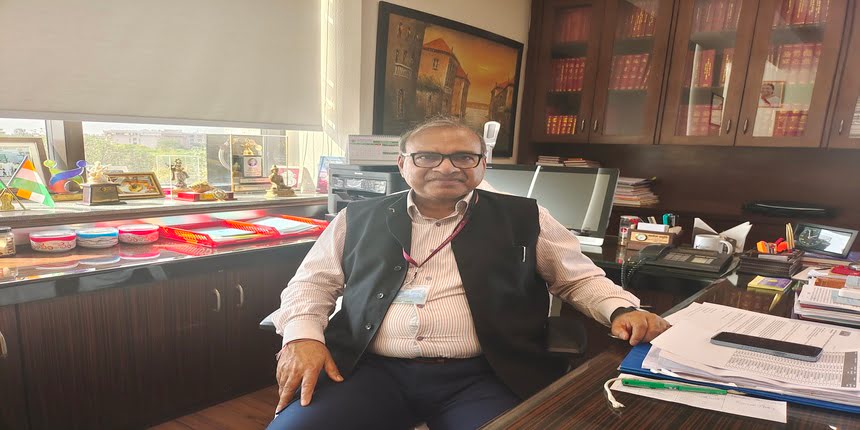 AICTE member secretary Rajive Kumar.(Image: Careers360)
AICTE member secretary Rajive Kumar.(Image: Careers360)Shradha Chettri | April 15, 2024 | 10:30 AM IST
NEW DELHI: VLSI, logistics and advanced communication technology are the thrust areas for All India Council for Technical Education (AICTE), where it wants to develop students skills, said AICTE member secretary Rajive Kumar during an interaction with Careers360. He spoke about the initiatives being taken to enhance employability of students and how it is working to encourage them to pursue MTech and Phd courses.
Q. In 2023 there were reports on how placements across engineering institutes had plummeted. Is the scenario in engineering institutes likely to change in the country?
A. Definitely. We have not received the employment data of 2023-24 from the institutes so far. Once the approval process of 2024-25 is over, colleges will start submitting the data. But if we see the enrolment trends of the last three years, it is increasing in core engineering. This is because we had asked institutes to adopt new technology, start minors in Artificial Intelligence, cyber security, robotics etc along with the core engineering curriculum. After these initiatives were taken, admissions in core engineering have shown an upward trend.
Upward trends definitely include market needs, manpower, those who are competent in newer technologies and hands-on, and are good leaders.
We have started a number of initiatives that inculcate such types of competencies in our students. For instance, a hackathon is a team effort. The innovation councils – we have established several of them. Our pupils are monitoring them and rating them. This has created an impact.
Now we are organising competitions among these councils. We are organising bootcamps and several activities where students are interacting with each other and more importantly, the industry people are participating. The industry partners are looking at innovation being done at the college and school levels. Such initiatives will definitely help increase the employability of our graduates.
Q. Has the approval process under the new guidelines for starting and closing engineering courses been completed?
A. We have received the application from institutes, but we have not processed them. We have received around the same number of applications like that of last year and a similar number of institutions are shutting down. If 200 new institutes are applying to start engineering courses, around 160-170 are applying for closure. This trend is the same every year.
Q. The new handbook approval process also gives institutes the leverage to close down departments, if institutes are not able to fill seats. What has been your observation?
A. As per our approval process, three core engineering courses are mandatory. They cannot close them. We are yet to analyse the data.
Q. Is there any engineering course which you think institutions should start?
A. We are basically encouraging three areas. One is chip designing and manufacturing (VLSI), second is logistics and then advanced communication technology (5G, 6G and above). These are the thrust areas. Last year we gave approval to 300 colleges in these areas. This year we have opened it for all. We want to have a large number of human resources particularly in these three areas. Not only at the engineering level but also at the level of technicians.
Q. It has been sometime that the innovation councils have been set up. How differently are they working?
A. We started from scratch and we were not expecting this kind of enthusiasm from the students. Our team is connecting with students regularly and we are getting a lot of ideas on improving the working of these innovation councils. We are opening an innovation council in every higher education institution – irrespective of the fact that it is approved by AICTE or not. We have also started opening innovation councils in schools. We want to build the ecosystem from the school level itself. The department of school education and literacy is supporting AICTE and has funded us to build this ecosystem.
Q. Is there any particular reason for the continuous extension being provided to institutes who are required to get approval for BMS/BBA courses?
A. Around 3,700 institutions have already registered and some have submitted their application and made the payment too. When there is something new there will be reactions from some quarters. So we are discussing the issues with them.
Recently we announced 3,000 scholarships for girls studying BCA/BBA and BMS courses per year. A committee of experts is preparing a model curriculum for these courses.
We hope to release the model curriculum before the new session starts. The curriculum will have all the inputs of the industry, including what the industry is expecting from us. We will also bring the concept of major and minor.
We will give a new look to these courses and there will be no cost involved when institutes start implementing them. We will also train their faculty with several faculty development programmes.
Q. The data released by the education ministry showed that there were fewer teachers with PhD in engineering fields. What is the situation now?
A. We don't have many faculty members in engineering who have PhDs. Pupils are not encouraged to do PhD as they get good jobs even without a PhD. Now we are also offering scholarships to faculty members and students to complete their PhD. This is one area where students are not showing much interest. Even IITs [Indian Institutes of Technology] are struggling with it. It is a universal problem.
Also read Why Bihar’s agricultural engineers have 0.001% chance of landing government jobs
Q. Enrolment in MTech courses has been declining. What is AICTE doing to address this?
A.This is an area of concern for us as well. It happens mostly because students after completing their BTechs get placed. So most don’t feel the need to study further. We are encouraging students to join courses by providing different kinds of scholarships.
Q. We are seeing a lot of incidents of suicides among engineering students. What is AICTE doing about this?
A. It is very sad and unfortunate. If you see the history, such types of problems were previously also there in AICTE-approved institutions. This was almost 10 years ago, but there is no incidence now.
In 2016 we started an induction programme for students entering the technical education programmes. That programme was framed by the then director of IIT BHU Rajeev Sangal. He designed and implemented that in IIT BHU where there were no classes for three weeks. During that time, the institute conducted only activities where students interacted and discussed. We implemented that programme in our colleges. We trained our faculty on how to run the programme. The work is still underway.
We told them to complete the 21 days in the first year itself. We have trained around 2 lakh faculty members. We have a committee that conducts the programme.
Parents have a large role too. Students face a lot of pressure. I personally feel that just counselling students will not help. We need to counsel the parents as well.
Follow us for the latest education news on colleges and universities, admission, courses, exams, research, education policies, study abroad and more..
To get in touch, write to us at news@careers360.com.
